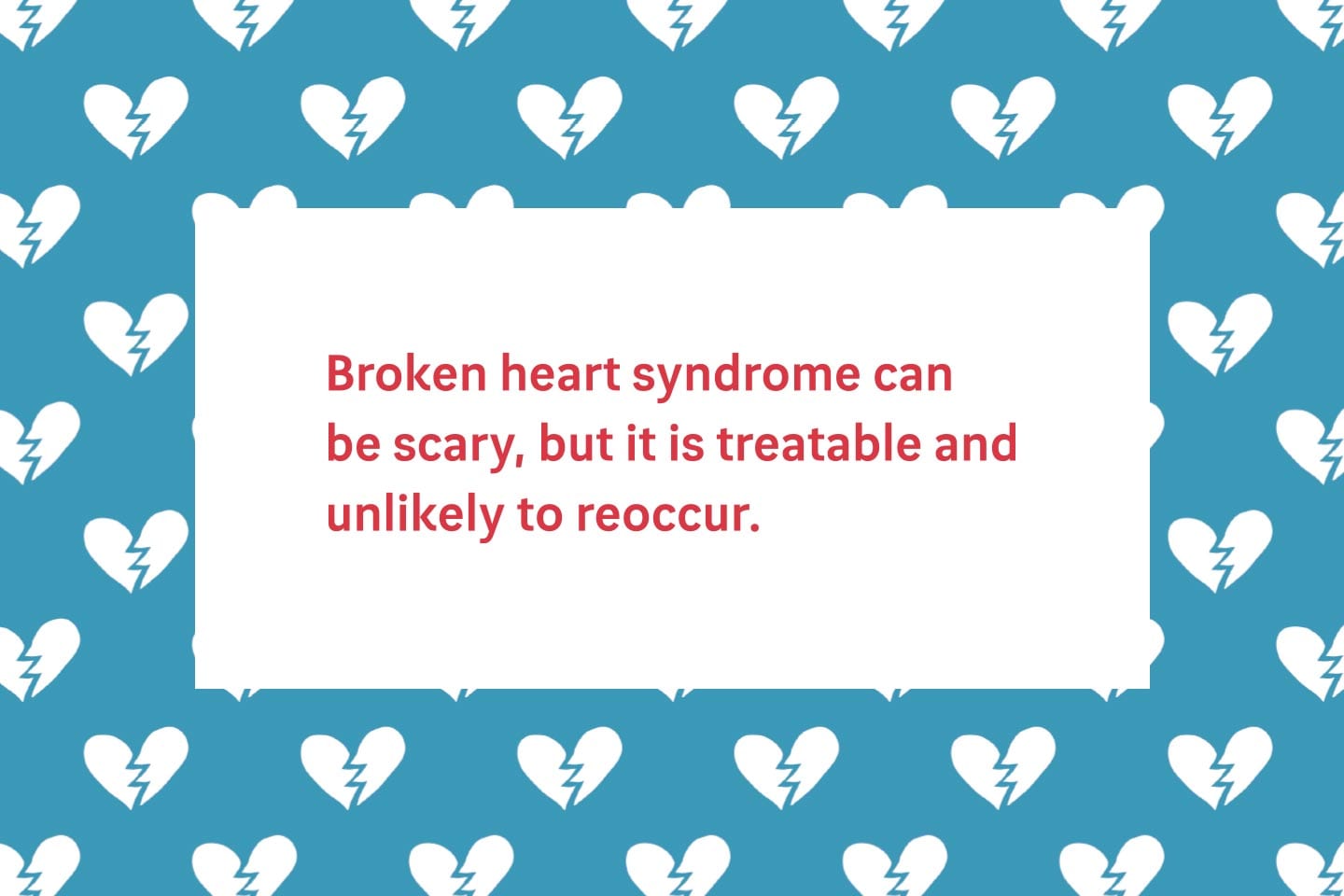What It Is & Who’s at Risk
Usually, when we think of heartbreak, we think of something psychological – a broken relationship, the loss of a loved one, or getting bad news. However, sometimes heartbreak can be so severe that it’s not just in your head. Profound sadness and stress from grief can lead to physical chest pains and shortness of breath, just like other heart conditions. This condition is referred to as broken heart syndrome, and fortunately, it’s both temporary and treatable.
By Anna Hill
What Is It?
Broken heart syndrome is exactly what it sounds like. Also known as stress cardiomyopathy, apical ballooning syndrome, or Takotsubo cardiomyopathy, broken heart syndrome occurs when extreme mental or emotional stress begins to manifest itself as physical symptoms. It can be triggered by anything that causes severe distress in a person, including:
- Loss of a loved one
- Unexpected bad news
- Domestic abuse
- Loss of employment or finances
- Divorce
- Surprise parties or events
- Public speaking
- Physical stressors that require serious medical attention or surgery

Cardiologist,
The Chattanooga Heart Institute at CHI Memorial
In rare cases, some drugs might accelerate stress hormones, which can cause broken heart syndrome. Drugs that may cause it to occur include epinephrine, which is used in EpiPens, some medications for depression, and unprescribed or otherwise illegal stimulants, such as cocaine or methamphetamines.
The physical symptoms that one might experience from broken heart syndrome include tightness in the chest, shortness of breath, and chest pains. These symptoms are also common signs of a heart attack, so it’s important that anyone experiencing them is monitored closely and given medical attention if such symptoms persist – especially since heart attacks are far more common. “Around 2% of patients who present with signs and symptoms of a heart attack will ultimately be diagnosed with broken heart syndrome,” Dr. Chad Armstrong, a cardiologist with The Chattanooga Heart Institute at CHI Memorial, explains.
Unfortunately, the exact cause of broken heart syndrome is currently unknown. The most popular hypothesis on why it occurs is that a surge of stress hormones, like adrenaline, can cause temporary damage to someone’s heart, yet there is no knowledge of the exact damage this surge of hormones causes. A temporary constriction of the large or small arteries might also play a role.


Executive Director,
The Lantern Alzheimer’s Center of Excellence
Who’s at Risk
While anyone can experience broken heart syndrome, certain risk factors put some groups at a significantly higher risk.
Sex. Research from Harvard Medical School has shown that broken heart syndrome occurs overwhelmingly in women. In fact, more than 90% of reported cases are in women from ages 58 to 75. Alisha Landes, the executive director of The Lantern Alzheimer’s Center of Excellence, adds that while women are primarily at risk, a smaller subset of women are at an even higher risk. “Broken heart syndrome is more common among post-menopausal women. The exact reason is unknown – however, it could be likely due to hormonal changes caused by menopause.”
Age.
Though it’s possible for broken heart syndrome to occur in younger adults, the vast majority of reported cases appears in people over the age of 50.
History of Neurological Conditions.
Anyone who has a history of head injury or trauma, as well as people with epilepsy or any other kind of condition that can cause seizures, is at greater risk of experiencing broken heart syndrome.
History of Psychiatric Disorders.
Those who have a history of or are currently experiencing anxiety, depression, or other kinds of mood-affecting disorders also have a higher risk of developing this syndrome.
Broken Heart Syndrome vs. Heart Attack
At first glance, symptoms of a heart attack and symptoms of broken heart syndrome may appear confusingly similar. “Symptoms of either condition need to be diagnosed and monitored by your primary physician,” explains Landes. There are a few different testing methods available that medical professionals use in order to diagnose whether you’re having a heart attack or not in these situations, including an electrocardiogram, X-rays, blood tests, and a cardiac MRI.
A key sign of broken heart syndrome that is often not present in heart attacks is ballooning or unusual movement in the lower left heart chamber; on the other hand, if a heart attack is occurring, there is often complete or near-complete blockage of an artery due to a blood clot that forms as a result of fatty buildup (atherosclerosis) in the arteries. A heart experiencing broken heart syndrome is usually free of this blockage.

Treatment and Prevention
The treatment for broken heart syndrome is dependent on how severe your symptoms are. Typically, doctors will recommend medications that are often used to treat heart failure, such as beta blockers, diuretics, and ACE inhibitors, or aspirin if patients also have buildup in their arteries. Beta blockers in particular have shown to be effective, as they also help prevent recurrence of the syndrome by minimizing the effects of adrenaline or stress hormones, both of which can contribute to the symptoms of broken heart syndrome.
In some cases, patients might be kept in the hospital for monitoring. “Patients are monitored often in the hospital for signs of heart failure, which include pulmonary edema (fluid in the lungs), swelling in the legs, and low blood pressure, which can be a sign of shock from low cardiac output,” says Dr. Armstrong. Fortunately, most who suffer from broken heart syndrome only do so for a short amount of time and usually see their symptoms clear up within two to four weeks.
It is rare for someone to experience broken heart syndrome more than once, though it can happen. Some doctors do prescribe beta blockers in order to reduce risk or other damaging effects of the condition, though for most, prevention simply means recognizing and managing the stressors in your life.
Broken heart syndrome can be scary, but it is treatable and unlikely to reoccur. If you’ve recently undergone a stressful life event and aren’t feeling like your normal self, talk to your doctor about your concerns to ensure that your heart is in good hands. HS




